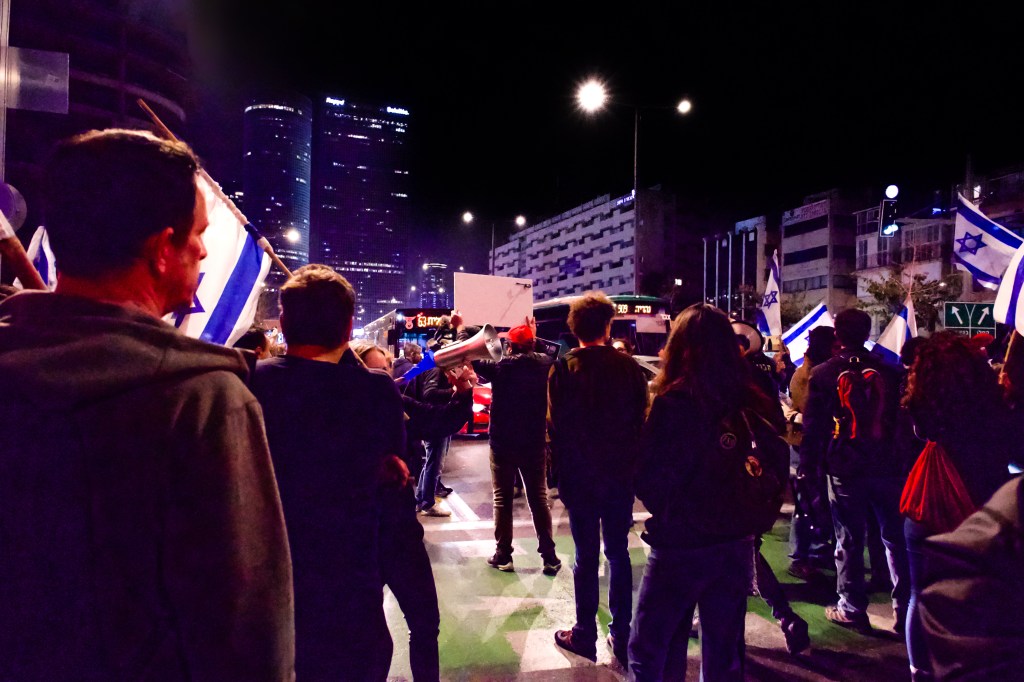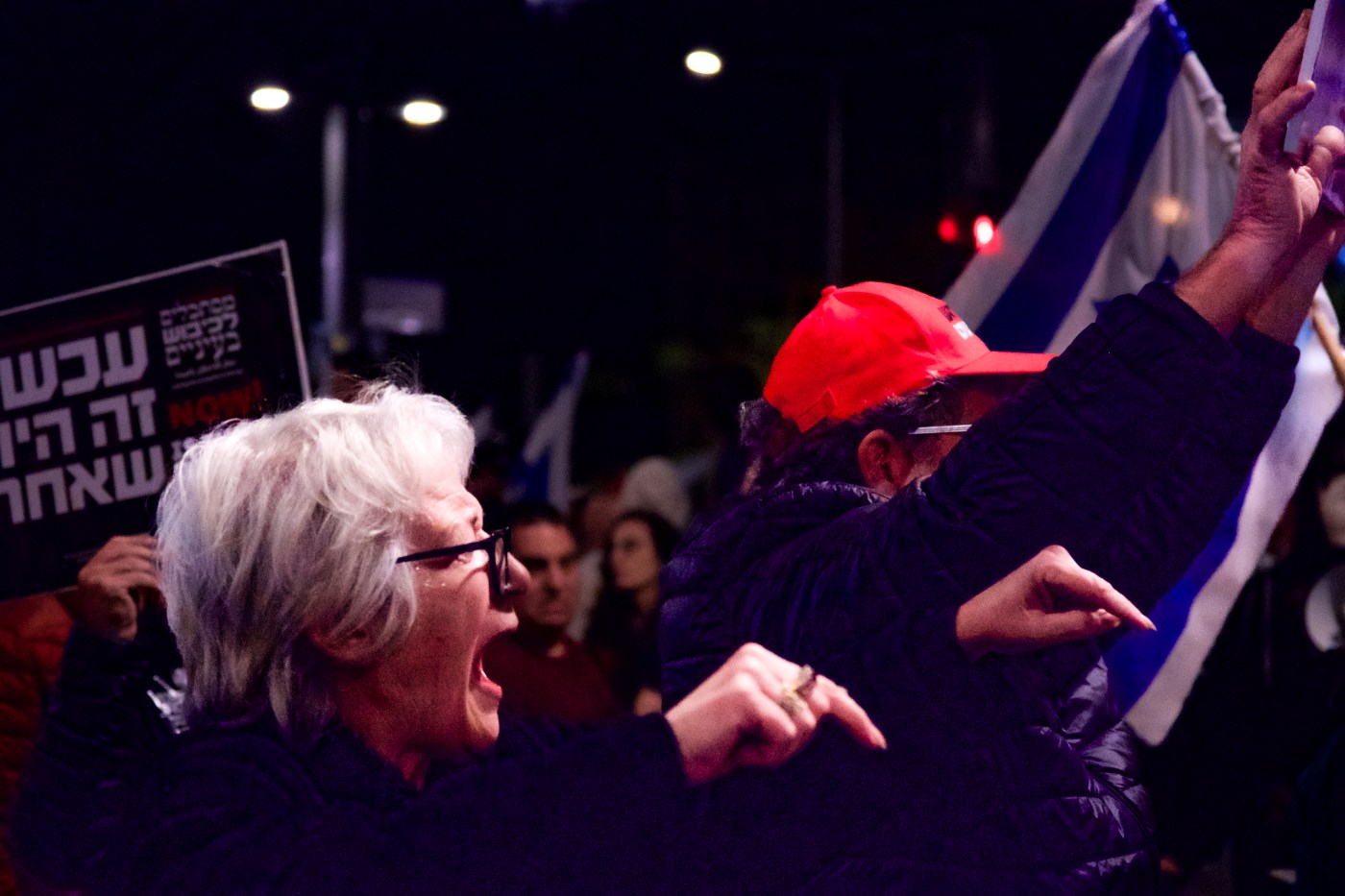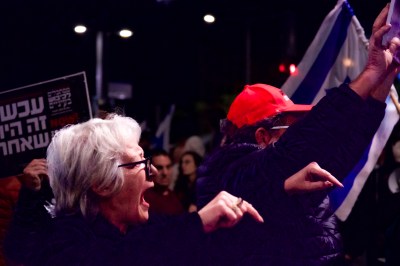TEL AVIV, Israel—Early last week, President Joe Biden made an optimistic prediction: “We’re close,” he said of progress toward a temporary truce in Gaza to secure the release of additional Israeli hostages from Hamas captivity. “My hope is by next Monday we’ll have a ceasefire.”
But Monday has come and gone, as Hamas negotiators rejected Israel’s proposed framework, doubling down on the terrorist group’s demands for a permanent ceasefire and the withdrawal of Israeli forces from the Gaza Strip. Days later, in Cairo, Israel’s delegation sat out U.S.- and Qatar-brokered talks after Hamas refused to provide a list of the hostages who are still alive. The temporary ceasefire on the table would secure the release of up to 40 of the estimated 100 living hostages in various phases. In exchange, Israel would halt its advances for six weeks, release at least 300 Palestinian prisoners from its jails, increase humanitarian aid deliveries, and allow displaced Gazans to return to specified areas in the northern part of the Strip.
International intermediaries continue to project confidence that an agreement will soon come to pass, but, for now, the decision appears to be Hamas’ to make.
“Hamas claims it wants a ceasefire,” Vice President Kamala Harris said Sunday. “Well, there is a deal on the table.” Now the Biden administration is angling for an agreement by the Muslim holy month of Ramadan, which is set to begin Sunday, but Hamas may be thwarting its plans by insisting on guarantees that the war won’t start up again after the truce expires.
Counterintuitive though it may seem, Hamas’ maximalist demands come as it continues to suffer losses on the battlefield. The terrorist group’s military capabilities in the central and northern parts of the Strip have all but collapsed as the Israel Defense Forces (IDF) captures strongholds and kills fighters by the dozens. Where it once carried out coordinated attacks against advancing troops, Hamas is now resorting to guerilla warfare on its home turf. Israel says 18 of the group’s 24 battalions have been destroyed.
So why does Hamas seem to be dragging out negotiations to stop, at least temporarily, a war that it’s badly losing? On Day 150, the group appears to be relying on its tactic from Day 1: buying time so that international resentment toward Israel’s war effort will ensure Hamas’ survival and eventual reconstitution. Israeli officials say it’s a miscalculation, vowing to uproot the terrorist group despite mounting international—and brewing domestic—pressure to end its campaign in Gaza.
“Hamas was never looking for a quick deal. They were looking for an Israeli surrender, for a ceasefire that would be unilateral, and for Israel to pull out of the Gaza Strip completely, ” Nadav Eyal, a prominent Middle East political commentator at Israeli news outlets Yediot and Ynet, said in an interview. To that end, he added, Hamas is “still betting that [Hamas Gaza leader Yahya] Sinwar and his terrorists can survive more time underneath the ground than the IDF can above the ground. And this basic gamble has not changed since the beginning of the war.”
The Biden administration isn’t so fond of the waiting game. U.S. officials on Saturday reiterated Washington’s goal of brokering a temporary truce by Ramadan—a deadline fast approaching. The Muslim fasting month has long been a flashpoint for religious tensions in Jerusalem, in which different faiths vie for access to their respective places of worship. Riots and clashes between Arab Israelis and security forces are an annual concern, particularly in the Al-Aqsa compound, or Temple Mount, where Muslims and Jews both have holy sites.
This year, Iran, Hezbollah, and Hamas hope to exploit the charged occasion by turning it into “the second stage of October 7,” Israeli Defense Minister Yoav Gallant warned last week. It wouldn’t be the first time Hamas has capitalized on religious strife between Jews and Muslims living in Israel. In 2021, an 11-day war broke out after the Gazan group responded to clashes at the Al-Aqsa compound with rocket fire into Israel. Hamas branded its attack on Israel last October as the “Al-Aqsa Flood,” calling on Arab-Israelis and Palestinians in the West Bank and Jerusalem to rise up against Israel.
So far, they’ve refrained from joining in on attacks in great numbers. But the forthcoming holy month could change that. Ramadan and Al-Aqsa are “a rallying call for Palestinian Jerusalemites, West Bankers, Israeli-Arabs, and Muslims and Arabs in general. It gives a much wider resonance to what Hamas seeks to expand far beyond just the Gaza Strip,” Assaf Orion, a brigadier general in the IDF reserves and defense strategist at the Tel Aviv-based Institute for National Security Studies, told The Dispatch. “It’s another chance to try to draw in additional parties and theaters to expand the war.”
American negotiators want to reach a deal before Ramadan to avoid such an escalation, but also to discourage the IDF from expanding the scope of the war in Gaza. Israel has in recent weeks indicated its plans to push into Rafah—the southernmost city in Gaza that’s currently housing 2.3 million people, many of whom are displaced from elsewhere in the Strip—to destroy the Hamas battalions hiding beneath the civilian population. The U.S. has discouraged the maneuver, particularly in the absence of a clear plan for how to relocate civilians to safe zones.
A new deal could forestall an offensive into Rafah, particularly as a growing number of Israelis call on Prime Minister Benjamin Netanyahu to prioritize the return of hostages over the war effort. An estimated 130 hostages, 100 living, have now been in Hamas captivity for 150 days. Mass demonstrations by their families and supporters are a regular feature on Israeli streets amid fear that their plight has been forgotten by the government.
Securing the release of Israeli abductees should be the government’s “main priority,” Yuval Sharon, a young man from a village south of Tel Aviv, said during a protest in Israel’s second largest city last week. “The most important thing should be bringing them back home, and if this doesn’t happen, it will be a failure of the war.”

“We have to make an agreement, to stop the war and to bring back the kidnapped,” another protester, Tsfira Geva, told The Dispatch. “Because soldiers are killed every day.”
But Hamas has yet to signal that it’s prepared to release all of the hostages—perhaps the only offer that would see Israel willingly abandon its goal of eliminating the armed group.
While the immediate fate of Gaza remains in limbo, Israel’s plans for its governance post-Hamas are equally unknown. It’s a question of growing importance as Hamas defeats begin to create power vacuums in the central and northern areas of the enclave. The humanitarian fallout from those voids was on full display on Thursday, when dozens of Gazans were killed after swarming an aid convoy in northern Gaza. Conflicting accounts of the deadly incident followed, but it laid bare the deteriorating law and order that has allowed gunmen to loot food supplies from a desperate population.
In an effort to mitigate the humanitarian crisis, the U.S. military carried out its first airdrop of aid over the weekend, delivering more than 35,000 meals. But a more robust, long-term governing solution is required.
“What’s the plan? What’s going to happen now? This is exactly the question that the White House has been asking since the beginning of the war,” Eyal told The Dispatch. “The IDF is an extremely powerful army and it’s winning the military battle. The problem is that Israel might lose the war if it pulls out without having a political alternative, with military power, to Hamas. Right now, it doesn’t have one. We are at the day after.”







Please note that we at The Dispatch hold ourselves, our work, and our commenters to a higher standard than other places on the internet. We welcome comments that foster genuine debate or discussion—including comments critical of us or our work—but responses that include ad hominem attacks on fellow Dispatch members or are intended to stoke fear and anger may be moderated.
With your membership, you only have the ability to comment on The Morning Dispatch articles. Consider upgrading to join the conversation everywhere.